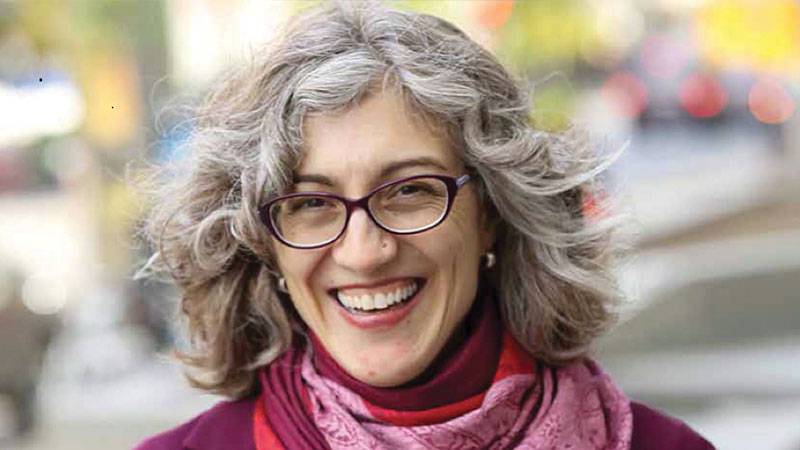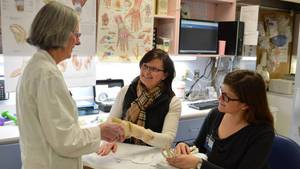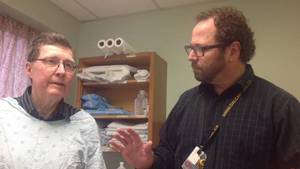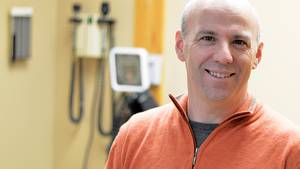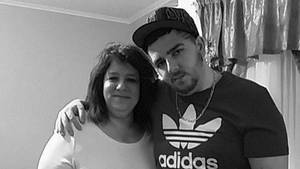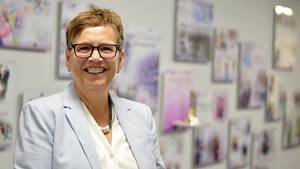More than just end-of-life care and pain management, palliative care can often be the forgotten or misunderstood tool in the healthcare system. As our province faces an aging population and the country’s highest cancer rates, and with grief amplified by the COVID-19 pandemic, Dr. Mary Ellen Macdonald, the newly appointed J & W Murphy Foundation Endowed Chair in Palliative Care, has a simple message.
“Death and dying, and even bereavement, do not have to be that scary.”
A medical anthropologist by training and a decorated scholar, Dr. Macdonald joins Dalhousie University, the QEII Health Sciences Centre and Nova Scotia Health with a clear mission: to provide leadership and mentorship to those involved in palliative care research in Nova Scotia and Atlantic Canada, and to establish an active research program that will stimulate evidence-based breakthroughs in the delivery of palliative care.
THE QUEST FOR BETTER
For Dr. Macdonald, who grew up in Nova Scotia, the pull to return home from McGill University was rooted in a deeply personal, yet not uncommon, experience with the healthcare system.
After two-and-a-half years with ovarian cancer, Dr. Macdonald’s mother was transitioned to palliative care. This meant moving from one side of the hall in a county hospital in Nova Scotia to the other, with the only noticeable difference being a more spacious room with a small kitchenette that was available to the family.
In that moment, Dr. Macdonald was no longer a researcher or palliative care expert — she was a family member with questions and uncertainty.
“We had no bereavement follow-up, we had no end-of-life preparation from the team,” says Dr. Macdonald. “We literally had palliative care for 48 hours.”
Dr. Macdonald is quick to point out the exceptional care her mother received over the years, but unwavering about the essential role high-quality palliative care can play not only for patients, but their families and communities.
“I know how important palliative care can be, and I know how wonderful palliative care can be in Nova Scotia,” says Dr. Macdonald. “I want the best for all Nova Scotian families.”
A TRANSFORMATIONAL GIFT
The Murphy family, through the J & W Murphy Foundation, made a $3-million gift to the QEII Foundation to make this Chair a reality. Through their generous support, the newly established J & W Murphy Foundation Endowed Chair in Palliative Care ensures dedicated research dollars are available in perpetuity — helping to transform palliative care here at home and on a national stage.
The Murphys felt inspired to make a difference after they lost three family members in quick succession, only a few years before they made the decision to give.
“It needs to be easy to talk about advanced care directives and end-of-life decision making, and hospice accessibility,” says Lisa Murphy. “Unless those conversations start early enough, it will always be a crisis situation. It has to be as easy to have that conversation as it is to talk about the flu shot.”
With the endowment, Dr. Macdonald will be able to fully dedicate her time to research that will influence palliative care policies and standards that improve the quality of life for individuals, families and communities facing serious illness, and those grieving losses.
“It means the world to me. It’s amazing that someone thought about protecting time for palliative care research,” says
Dr. Macdonald. “I'm a researcher in my heart and this endowment means that I can do what I was trained to do — research. Talking to people and hearing their stories and being authentically engaged, and not working on what I love ‘off the side of my desk’.”
COMMUNITIES KNOW BEST
The topic of death and grief can be uncomfortable for many, specifically when discussing our own mortality. For Dr. Macdonald, the importance of learning from communities and putting a name to the work that is being done is critical.
When someone is sick or dying, communities come together to help families and patients and to ensure their basic needs are taken care of. This could be as simple as mowing the lawn while someone is in hospital, preparing meals, or even offering a drive.
“From diagnosis through bereavement, that’s all palliative care,” says Dr. Macdonald. “There's a lot of living that happens before the dying starts, and after the death too; that’s what we also need to focus on. Yes, death can be scary, but there are months on either side full of opportunities to support your neighbour. That's not scary, that's just being a good citizen.”
As an anthropologist and social scientist, Dr. Macdonald’s approach to palliative care research is one of appreciative inquiry. By looking through the lens of public health and analyzing how an institution fits into the community, rather than only at the bedside, she hopes to gain greater insight into what is already working well, and how can ‘the good’ be multiplied and operationalized.
More than anything, her approach is pragmatic.
“Everyone is going to grieve, and everyone is going to die. We could be doing both better.”

